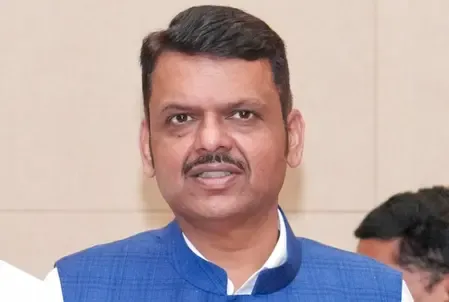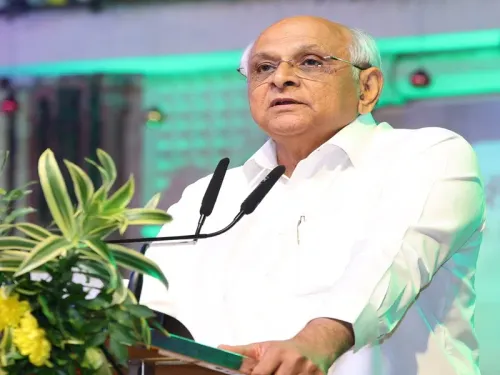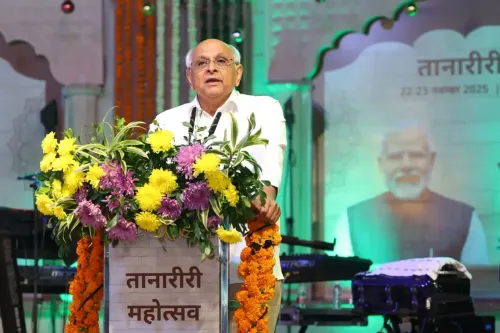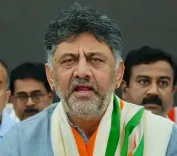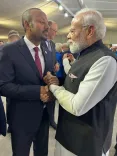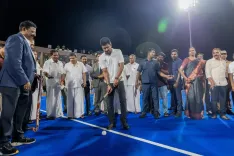Will India Stand Firm Against Nuclear Blackmail and Terror Sponsors?
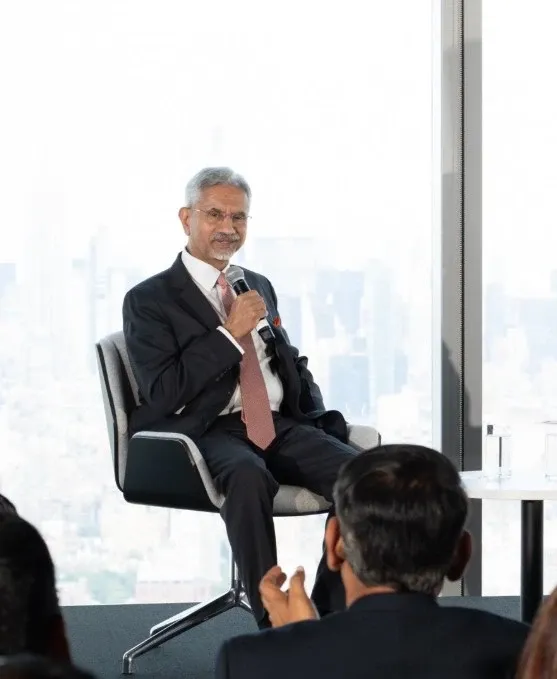
Synopsis
Key Takeaways
- India will not yield to nuclear blackmail.
- No impunity for terrorists.
- Cross-border terrorism is a serious threat.
- India's defense policy is evolving.
- Zero tolerance for terrorism is emphasized.
Washington, July 1 (NationPress) External Affairs Minister (EAM) S. Jaishankar has reiterated India's robust position against terrorism and nuclear intimidation, emphasizing that New Delhi will not be swayed by fears regarding Pakistan's nuclear capabilities when addressing cross-border terror activities.
In a powerful interview with Newsweek at its One World Trade Centre headquarters near the 9/11 Memorial in Manhattan, Jaishankar stated that India will not grant a "free pass" to terrorists or the nations that support them, and that nuclear threats will not hinder India from acting in its national interest.
"We are unequivocal in our stance: there will be no impunity for terrorists, and we will no longer treat them as proxies, sparing the governments that support and fund them. We will not allow nuclear blackmail to stop us from defending ourselves," Jaishankar declared.
The EAM addressed the longstanding global caution regarding the need for careful handling of conflicts between India and Pakistan, given their respective nuclear capabilities.
"For too long, we have heard that both India and Pakistan possess nuclear weapons, and hence, any aggression from one side should not be met with a response to avoid global concern," Jaishankar asserted.
"We refuse to accept this narrative. If there are provocations, we will respond decisively and hold accountable those responsible," he added, eliciting applause from the audience.
"No yielding to nuclear blackmail, no impunity for terrorists, and no more treating them as proxies. We will take the necessary actions to protect our citizens," he stressed.
Jaishankar highlighted that terrorism is a universal threat that should not be used by any nation to advance its agenda, as it ultimately affects everyone.
He noted that while terrorism has intensified in India over the past forty years, its roots trace back to the period following the nation's Independence.
"Terrorists were deployed into Kashmir under the guise of proxies and tribal invaders, soon followed by elements of the Pakistani Army," he recalled, referencing the 26/11 Mumbai attacks and the 2001 Parliament attack.
Jaishankar specifically mentioned the April 22 terror attack in Pahalgam, which claimed the lives of 26 innocent tourists, describing it as a calculated maneuver to undermine the tourism sector in Kashmir.
"This was a form of economic warfare aimed at crippling Kashmir's tourism, which is vital for its economy. It also sought to incite religious violence by forcing victims to disclose their faith before execution," Jaishankar explained.
He pointed out a growing national sentiment that "enough is enough" regarding cross-border terrorism.
Jaishankar emphasized that the support structures for these terrorist groups are not concealed but exist openly in urban centers of Pakistan.
"These organizations operate with the equivalent of corporate headquarters in populated areas of Pakistan," he remarked.
"Everyone is aware of the locations of Organization A and Organization B, which India has targeted and dismantled," he added.
India has successfully targeted high-value terrorist sites in Pakistan and Pakistan-occupied Kashmir (PoK) following Operation Sindoor, launched on May 7 in response to the Pahalgam attack.


